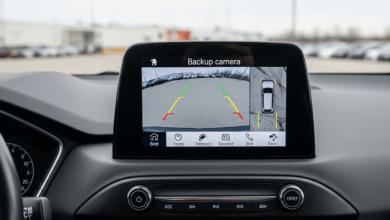Electric vs Petrol Cars in 2025: Who’s Really Winning?
In 2025, the auto industry is changing fast, with the debate over electric vs petrol cars becoming more prominent. Electric vehicles (EVs) are rising globally—but petrol (gasoline) cars still have a strong presence. The shift is real, but uneven. What’s the story across different countries? And which vehicle type is actually “winning”?
Let’s break it down by region and facts.
North America: Big Cities Go Electric, Countryside Stays Petrol
In the USA and Canada, electric trucks and SUVs are becoming more common, especially in cities with growing charging networks. According to the International Energy Agency (IEA), EV sales in North America grew significantly in 2024, with models like the Ford F-150 Lightning and Rivian R1T gaining attention.
However, in rural areas, many drivers still choose petrol or diesel vehicles. Why? Because they need long-range, reliable transport and fast refueling—something EVs can’t always guarantee yet.
Learn more: How charging station growth is shaping EV use
Europe: Ahead of the Curve
Europe is leading the global EV movement. Countries like Norway, Germany, and France have high EV adoption rates thanks to strong government support and well-developed infrastructure.
For instance, Norway hit over 90% EV market share in 2024, supported by tax exemptions and widespread chargers. Tesla remains popular, but local brands and Chinese automakers like BYD are growing fast in the region, especially as Tesla’s sales face pressure in Germany.
More on this: Tesla’s challenges in Europe
Australia & New Zealand: High Demand, Tough Market
Down under, interest in EVs is high—but the market is tricky. In Australia, Tesla Model Y saw a 675% sales jump in May 2025, showing growing demand. But high prices and a lack of charging stations still slow adoption.
In New Zealand, around 83,000 EVs are already on the road (EVDB), but recent tax changes and removal of government rebates have cooled down sales.
Related: EV stats in Australia and New Zealand
Cost Matters: What’s Cheaper?
EVs are still more expensive upfront, but they’re often cheaper to run. For example, a recent report found that driving an EV in France can save drivers £11.53 per 100 miles compared to petrol cars (Gulf Oil Ltd).
And good news: battery costs are falling. Experts predict EVs will match petrol cars in price by 2027 or sooner, according to the IEA’s 2025 Global EV Outlook.
Learn more: Tesla’s Robotaxi Revolution Begins in Austin This June: What It Means for the Future of Rides
What’s the Verdict?
There’s no one-size-fits-all answer. In 2025:
- Urban drivers love EVs for daily use.
- Rural drivers stick with petrol/diesel for practicality.
- Europe leads, while Australia/NZ struggle with costs.
- North America is split based on location.
Whether electric or petrol works better depends on where you live, what you drive, and your budget.





